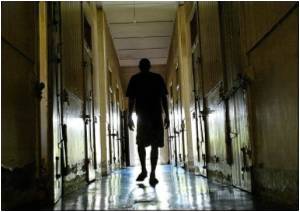A study says that Iraq and Afghanistan veterans who visited a VA integrated care clinic were much more likely to undergo initial mental health and social work evaluations

The study was published on June 7, 2011 in the electronic Online First section of the Journal of General Internal Medicine.
The decisive factor was the integrated care model, itself, said the lead author of the study, Karen Seal, MD, MPH, co-founder and co-director of the Integrated Care Clinic at the San Francisco VA Medical Center, which was the site of the study.
Under the conventional VA model, patients are seen by a primary care physician and, if they screen positive for mental illness according to the VA's standard protocol, are referred to a mental health provider. That referral appointment would not necessarily be available the same day, nor in the same clinic.
Under the integrated care model, all patients are referred immediately by their primary care physician to a mental health provider, called the "Post-Deployment Stress Specialist," and a social worker, called the "Combat Case Manager." All visits take place during the same appointment, in the same clinic, with no waiting.
"This demonstrates the value of the integrated care clinic model for our veterans, especially those who may be more vulnerable," said Seal, who is also an associate professor in residence of medicine and psychiatry at the University of California, San Francisco.
Advertisement
"We are really good at initial engagement, but unfortunately, we are not as successful at helping veterans stay with and complete a course of mental health treatment," said Seal. "We need to learn how to help veterans stick with the more difficult first few sessions of PTSD treatment, so they can get through to the other side when they really start to feel better." Seal explained that successful PTSD treatment usually takes nine to 12 sessions.
Advertisement
The 30-day mental health evaluation rate was 92 percent for the integrated care patients versus 59 percent for standard care patients. The rate for social work evaluation was 77 percent versus 56 percent.
For women veterans, the rate of initial mental health evaluations in integrated care was three times the conventional care rate. "This is good news, because women veterans have a high burden of mental health problems, and, at the same time, a disproportionate number of barriers to care, such as child care issues and other logistical constraints," said Seal.
Seal noted that the overall rate of initial mental health evaluations was higher in the integrated care model even after allowing for an overall VA systemwide improvement in first-time mental health evaluations that occurred after 2007.
She speculated that one promising approach to helping veterans complete their course of PTSD treatment might be the VA Patient Aligned Care Team (PACT) model, a new team-based method of providing primary care in the VA system. "One member of the patient care team could be assigned to make reminder phone calls for example, to encourage veterans to stick with and complete their mental health treatment," Seal said.
Source-Eurekalert








